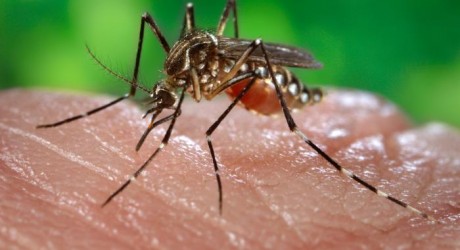By Shane D. Williams
There seems to be a new disease or strain of a disease in this region every other year and at the onset these new epidemics cause mass panic amongst the population when most of the time there is really not much to be concerned about. At one point it was Avian Influenza (Bird Flu) then it was Influenza A H1N1 (Swine Flu). Two years ago it was Chikengunya then recently it was the scary Ebola. Before all these we were worried about Dengue and Cholera. It seems the world is petrified at the thought of a modern day black plague or yellow fever outbreak and every unfamiliar disease that reaches this corner of the world spells D-O-O-M. The Zika Virus is the latest fear generating organism to surface in the West and just like diseases that came in the last two decades, the bark is greater than the bite.
Close to 40 health officials from across the country met in Belize City on Tuesday, February 09, to finalize the country’s preparedness plan of action for the Zika virus at a sensitization meeting. This meeting was attended by Dr. Ramon Figueroa, Chief Executive Officer in the Ministry of Health, and led by Dr. Marvin Manzanero, Director of Health Services. At the end of the meeting, Dr. Manzanero addressed the media on the state of affairs in Belize. He was joined by Kim Bautista, Head of the Vector Control Unit, and epidemiology experts Dr. Russell Manzanero and Dr. Natalia Largaespada.
DHS Manzanero reported that Belize has sent three samples for testing to the CARICOM designated laboratory. All three cases are people who had symptoms associated with Zika (common to most infections) and had recently travelled to a Central American country where cases have been confirmed or been in contact with someone who has done such travel. One of the samples has returned already. That sample tested negative for Dengue, negative for Chick-V and negative for Zika. The ministry is waiting for the other two samples which have been delayed due to the Carnival celebrations in Trinidad.
Dr. Marvin Manzanero says that while he can’t say that Zika is not in Belize, “I can say that we have no reported case in Belize as yet. However, it is just a matter of when.” The reason why it is difficult for experts to track the Zika virus is because 80 percent of cases are asymptomatic. The other 20 percent experience only mild symptoms.
The Zika Virus has been around for more than 60 years – but it is only in the past year that scientists and health experts have become seriously worried about it. A massive outbreak that started last year in Brazil brought it sharply into focus because of emerging links to microcephaly – a congenital disorder that can shrink unborn babies’ brains and heads and reduce life expectancy. However, this connection has only been seen in a specific region of Brazil says DHS Manzanero and there needs to be further studies to confirm if there is a link between the two. He says that Columbia has reported over 30,000 cases and have not linked any cases of microcephaly.
Since April, the virus has spread quickly. Zika is a mosquito-borne disease that normally has symptoms similar to the dengue and chikungunya viruses, which are spread by the same mosquito, the Aedes Aegypti mosquito. It is named after the Zika Forest near Lake Victoria in Uganda, where it was first noticed in 1947 from a captive monkey. Since, it has spread across Africa to Asia, Pacific Polynesia and now the Americas. Only 14 “sporadic” human cases were detected until 2007. Zika has now affected almost 30 countries already, mainly in the Americas. The World Health Organization has said, “Every country in which Aedes mosquitos are present can be at risk for the spread of Zika virus disease.”
It is only a matter of time before cases are officially reported in Belize. The Vector Control Unit has already done considerable ground work to limit the spread of the disease, says Bautista. The Ministry of Finance has provided about $800,000 to the unit over the past years, in addition to the $2,000,000 in grants from the Global Fund and the European Union to combat vector borne illnesses. These monies have allowed the unit to replace its formerly dilapidated vehicle fleet, procure equipment and train personnel at both the community and technician level. The Ministry of Finance stands ready to release additional funds to the unit if needed to launch a campaign against the Aedes Aegypti Mosquito.
What is the Vector Control Unit’s campaign to fight the virus? Well, its anchored on a stern warning to all Belizeans: “Don’t Get Bite!!” (The Guardian)














